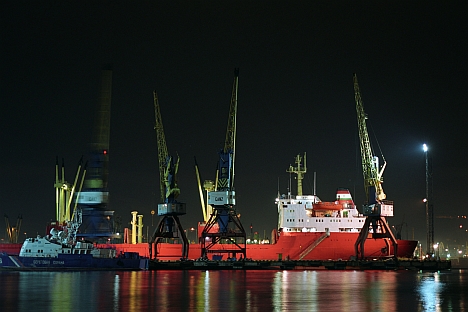New Russian government to back privatization effort

A 20 percent stake in the Novorossiysk Sea Port, Russia’s largest port, is expected to be put up for sale later this year along with other state assets. Sourse: ITAR-TASS
Speaking on
the sidelines of a conference in Moscow
last weekend, First Deputy Prime Minister Igor Shuvalov said that a new
concrete plan for the sale of equity in 10 state assets would be signed by the
new prime minister shortly after he is appointed in the wake of Vladimir
Putin’s inauguration as president. “There remains a wait of only a few
weeks,” Shuvalov said, according to RIA Novosti.
The news is cause for optimism for investors eagerly awaiting the reduction of
the state’s presence in several key sectors amid apprehension that the plans
had been sidelined.
Related:
Will Putin 2.0 mean a return to the prosperity of the 2000s?
What kind of capitalism has Russia built?
The privatization program, which had originally aimed to sell some $30 billion
worth of state assets by 2014, has been on hold since the first stake sale — 10
percent in banking giant V.T.B., which sold for $3.3 billion in early 2011. But
analysts say that while the statements show the program is unlikely to be
dropped, there is still a high chance it will not be implemented as fully or as
quickly as was previously planned.
This year, the government had planned to sell off stakes in three major
companies — lending giant Sberbank, the United Grain Company and Novorossiysk
Sea Port — but analysts say the size of the Sberbank sale may swamp the market.
The placement of 7.6 percent of Sberbank was postponed last fall due to poor
market conditions.
“The Sberbank stake sale is likely to happen this year, but it is likely that
other offerings will be postponed due to the size of the placement,” said
Andrei Kuznetsov, a strategist at Citibank in Moscow.
Much may also depend on the makeup of the new cabinet. Like many other
economy-related issues, privatization has caused a deep divide between the
fiscally conservative and the liberal spending camps in government.
While neither side has strictly opposed the program, the divide is essentially centered over what each side hopes it will achieve. Outgoing President Dmitry Medvedev, who initiated the program, leads those who want to speed up the process to improve corporate governance and attract foreign investment. Other officials are in favor of waiting until share prices are higher to maximize revenues from the sales. Deputy Prime Minister Igor Sechin, who wields a lot of influence over the energy sector, has long sought to delay the sell-off, claiming that it will lead to many assets being sold at prices that are too low.
First publihsed in the Moscow News.
All rights reserved by Rossiyskaya Gazeta.
Subscribe
to our newsletter!
Get the week's best stories straight to your inbox